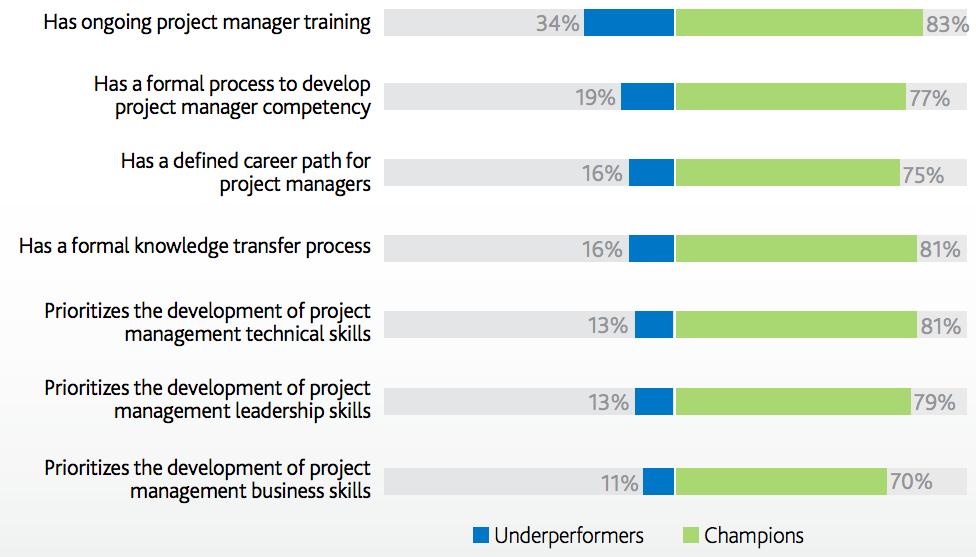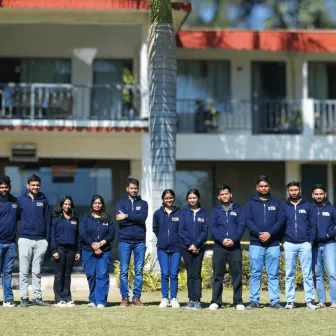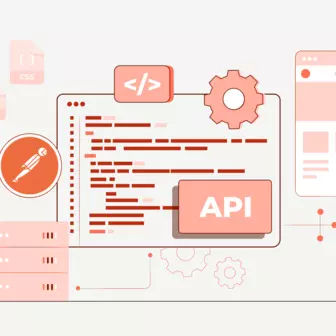Leo Hopf and William Welter, in their book ‘Rethink, Reinvent, Reposition’, instruct that development of new leaders requires a great project management culture that confronts tradeoffs of budgets, deadlines and deliverables realistically. They, further, say that businesses leverage projects as a mechanism to bring about changes that are needed to execute strategy and that the planning and leading projects provides the young leaders with an opportunity for building the skills which will be needed later on in their career. When you talk about project managers (PM) in a software firm, technical skill is something that comes across as a significant requirement (or maybe not so much) to better understand the IT projects and the work involved in it.

So, apart from the core responsibility of successfully handling the delivery of a project on time and on a budget, technical know-how is of paramount importance for project managers in a software organisation.
Technical skill: A significant requirement
While skills like leadership, motivation, prioritisation, problem-solving and adaptability are the most basic requirements of any PM, technical skills are essential as well for digital project managers. This is exactly why a report by PMI in 2018 includes technical skills among the must-haves. It states that 72% of the Project Management Office (PMO) leaders feel certification is of utmost importance for mid-career project managers that typically require ongoing professional development, allowing project managers to evolve, enhance and develop different skills comprising technical, leadership and digital skills.
While skills like leadership, motivation, prioritisation, problem-solving and adaptability are the most basic requirements of any PM, technical skills are essential as well for digital project managers.
It, further, states that more projects lead to more project roles. By 2027, 87.7 million persons working in project management-oriented roles will be needed by the employers thereby increasing the need for skilled and experienced project and program managers. More emphasis will be laid on project management performance enhancement for staying competitive and relevant. Champion organisations are investing more in their talent via training, formal processes, defined career paths, knowledge transfer and development of technical, leadership and business skills.

Different scenarios
The size and intricacy of the project play a crucial role in understanding if the technical skills are required by the PM in a certain software organisation.
If the project is small, then a PM may be required to do some sort of technical work on the project. It’s like a balancing act. The project is not sophisticated or big enough to warrant specialist technical and project management staff. For larger and intricate projects, PM is needed to be focussing solely on project management.
When a PM has a technical background, it can be troublesome too as it can get difficult to let go of tech background and decide whether or not become a full-time project manager. Also, the technical team may not want someone who is undermining and second-guessing them. Professional project managers with degrees and diplomas in project management and not the typical technical background can be favoured for their project management credentials and experience to lead projects. Hence, there will always be demand for both sorts of PM (with and without technical background).
Conclusion
Project managers have to make a suite of decisions during a course of the project and build relationships. They also have to deal with cross-functional issues. Most importantly, they have to hold themselves accountable for the results they deliver. Such is the significance of PMs for organisations that successful project delivery is directly proportional to a great work done by them. Software firms, where technical work covers a major chunk of their projects, can require a PM who can understand the project better. Technical skills, thus, play a pivotal role in helping PM know what’s right for a particular project with a better understanding of technical aspects.
We have been offering digital innovation solutions with our expertise in Drupal development and have project managers who are equipped to understand the technical requirements of a project and help in faster project delivery. Ping us at [email protected] and let us know how you want us to be a part of your digital transformation endeavours.
Subscribe
Related Blogs
Trek n Tech Annual Retreat 2025: A 7-Day Workcation of OSL

OSL family came together for the Trek n Tech Annual Retreat 2025, a 7-day workcation set amidst the serene beauty of…
Exploring Drupal's Single Directory Components: A Game-Changer for Developers

Web development thrives on efficiency and organisation, and Drupal, our favourite CMS, is here to amp that up with its…
7 Quick Steps to Create API Documentation Using Postman

If you work with API , you are likely already familiar with Postman, the beloved REST Client trusted by countless…




